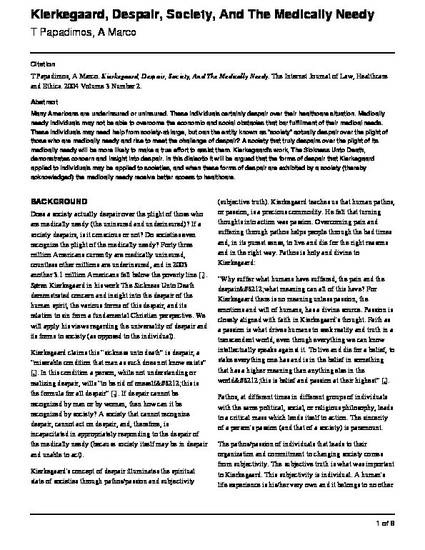
Many Americans are underinsured or uninsured. These individuals certainly despair over their healthcare situation. Medically needy individuals may not be able to overcome the economic and social obstacles that bar fulfillment of their medical needs. These individuals may need help from society-at-large, but can the entity known as “society” actually despair over the plight of those who are medically needy and rise to meet the challenge of despair? A society that truly despairs over the plight of its medically needy will be more likely to make a true effort to assist them. Kierkegaard's work, The Sickness Unto Death, demonstrates concern and insight into despair. In this dialectic it will be argued that the forms of despair that Kierkegaard applied to individuals may be applied to societies, and when these forms of despair are exhibited by a society (thereby acknowledged) the medically needy receive better access to healthcare.
Available at: http://works.bepress.com/alan_marco/89/
